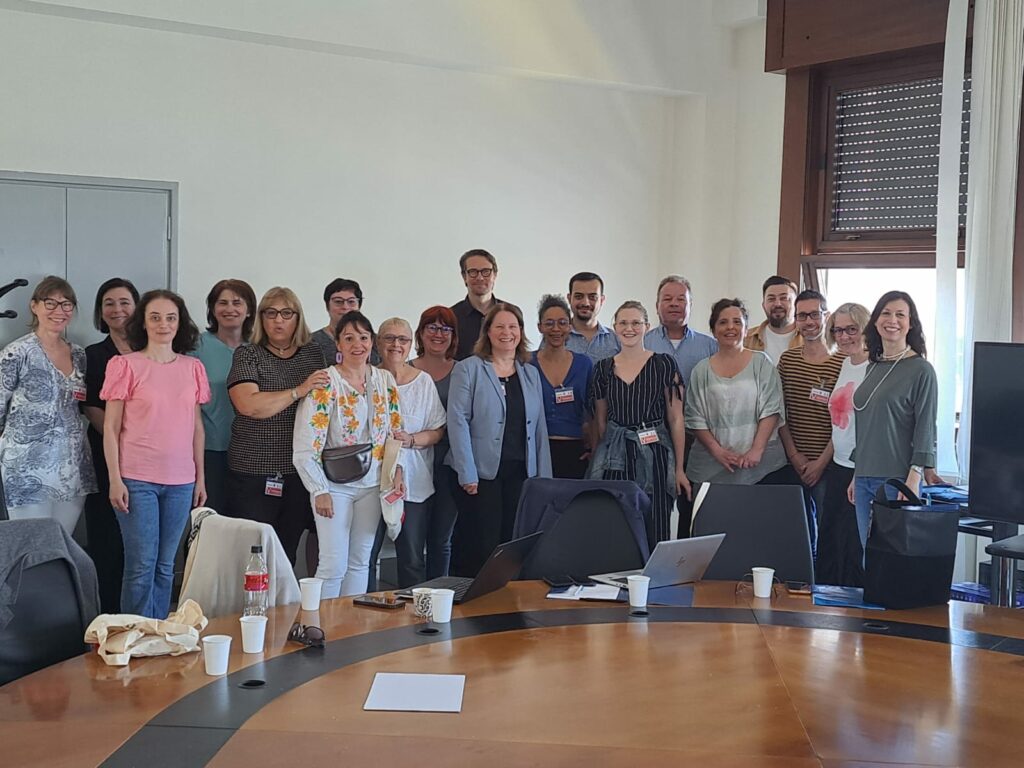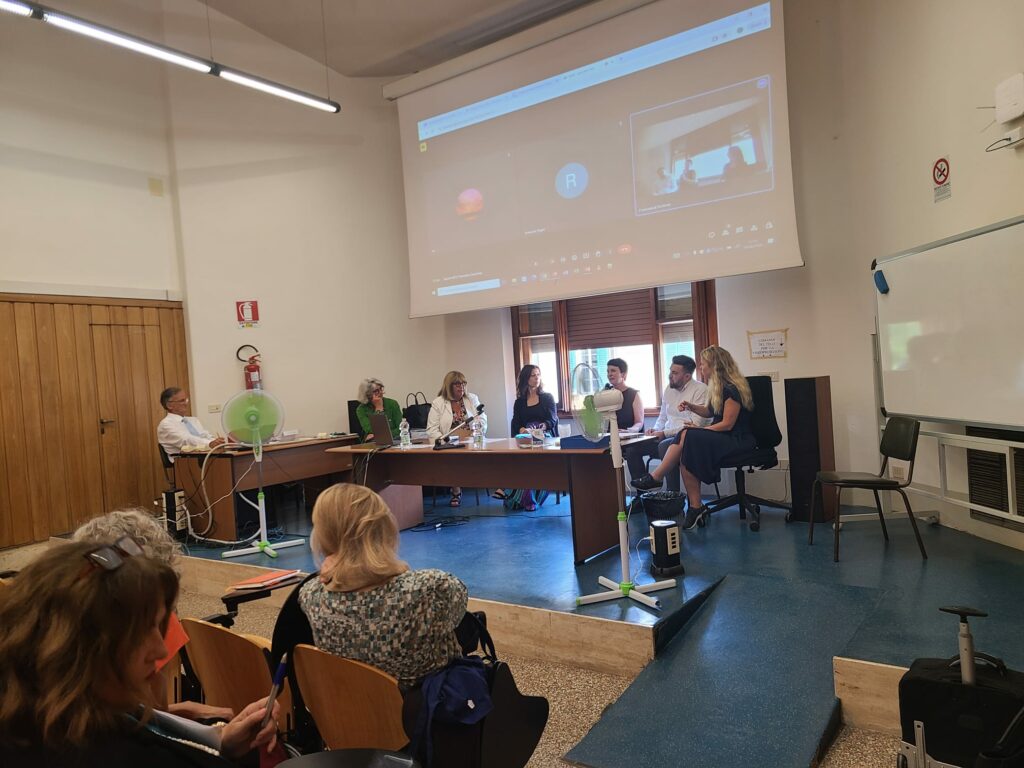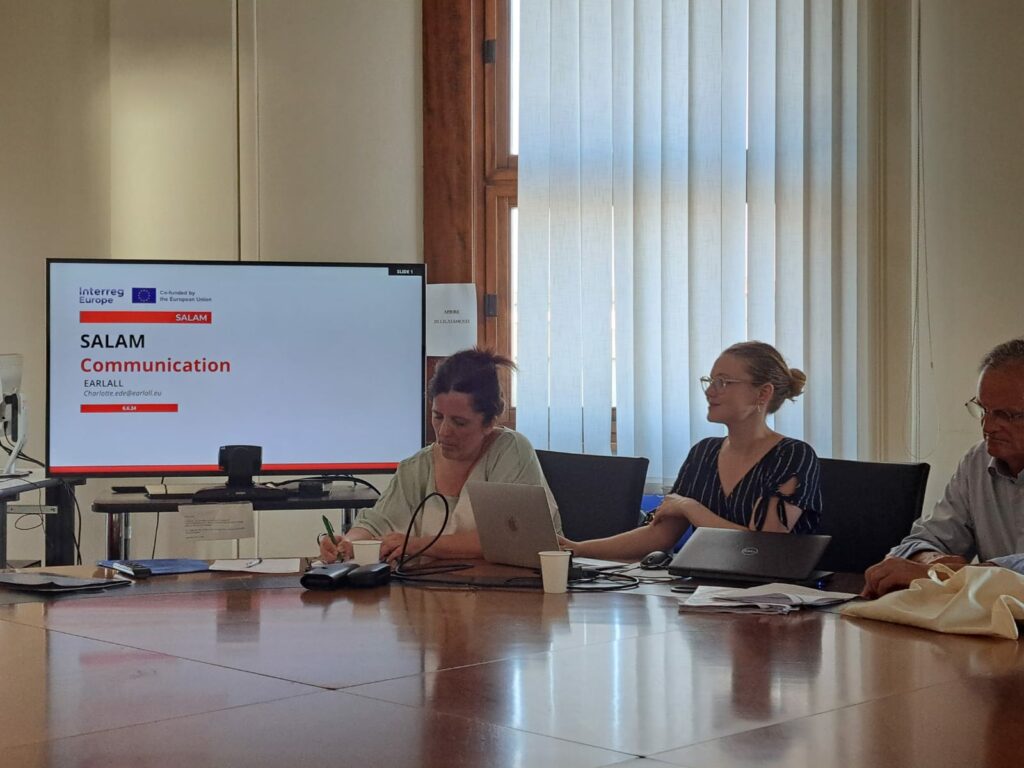SALAM – Sustainable Accessibility to the Labour Market kicks off
11/06/2024

The Interreg Europe project SALAM – Sustainable Accessibility to the Labour Market – kicked off in Florence between 6-7 June 2024. The new 4-year project, co-funded by the European Union, aims to support public authorities in fast-tracking the sustainable inclusion of migrants into local labour markets, harnessing their competences, capacities and ambitions, through developing targeted education, guidance and learning opportunities.
The project is coordinated by the University of Florence in cooperation with the Region of Tuscany, in addition to the region of Centre Val de Loire, Catalonia, Region Västra Götaland, & Mark Municipality; Baden-Württemberg & Association of the folk high schools Baden-Württemberg; West Regional Development Agency & Timisoara University and the European Association of Regional and Local Authorities for Lifelong Learning.
Adult Education Survey Data in Europe and Their Use for Policy Making
In the morning of June 6 2024, the University of Florence organised a thematic seminar discussed the 2022 EU Adult Education Survey Data and Their Use for Policy Making. Alessandra Petrucci, Rector of the University of Florence opened the seminar by welcoming partners to the University of Florence and by emphasising that SALAM is an important subject for policy-makers and researchers alike.Alessandra Nardini, Regional Minister, Tuscany Regional Government, outlined the importance of SALAM as Tuscany pays attention to not exclude anyone, particularly by recognizing the right for everyone to work. Francesca Torlone, University of Florence, welcomed participants and introduced SALAM as SALAM has been selected as one of 14 projects in the second Interreg Europe call in the Social area.
Round Table on the Adult Education Survey with representatives from SALAM’s regions

The Adult Education Survey is held every three years between 18-64 year olds across Europe, for adults who were engaged in learning within the last 12 months. During a roundtable, chaired by Paolo Federighi, Hon. Prof., University of Florence asked each speaker for their interpretation of the state of play of adult learning in their regions and their existing tools they would like to develop upon in SALAM.
Tuscany Regional Government (Italy), represented by Sabina Stefani, Head of Continuous training planning Unit highlighted that the data shows a low education of Italians in education and training, and this will be a focus for the region as they pay special attention to the employment of young people and try to offer education for all ages. In Tuscany, work-life balance is also important, and when you look at the gender differences and reasons cited for low participation, it is clear that more attention needs to be placed on providing adequate care services etc.
Centre Val de Loire (France), represented by Lise Cheriff, Employment and lifelong learning service noted that the data of the survey provides a picture where France is comparatively successful in the EU, but the region would still like to improve. For migrants, the region would like a process where they are integrated quicker into the local systems. Ms. Karin Gloanec Maurin, Regional councilor for Europe, European cooperation and International economic exchanges, Centre Val de Loire added that she is very happy for the cooperation between Centre Val de Loire and Tuscany, as the two regions have signed an agreement recently. Ms. Maurin outlined the many tools that the region has to address the issues of SALAM, and highlighted that regions must remember that migrants also come and help develop the economies of local territories.
Public Employment Service of Catalonia (Spain) was represented by Susana Díaz Martínez, Deputy Director of Active Employment Policies of Public Employment Service of Catalonia and Lupe Moreno Iturriaga, Deputy Director of Migrations, Refuge and Anti-Racism Coordination. Catalonia would like to continue to improve their employment and training policies with a focus on the migrant population. In the region, there are three principle obstacles for migrant integration into the labour market: lack of documentation of migrants; issues with recognition of prior training and institutional racism. The region hoes to address these issues partly through SALAM.
Region Västra Götaland/Mark Municipality (Sweden), was represented by Therese Ydrén, Project coordinator and manager for the AMIF funded project “Helhetslyftet”; aiming at strengthening labour market integration, Region Västra Götaland, the administration of folk high schools. The data shows that 80% of those between 18-24 are active in the Swedish labour market, but this figure is doubles for foreign-born individuals. Matching the qualifications of foreigners to the local labour market remains a priority, as well as reducing VET drop-out rates for migrants.
The Association of the folk high schools Baden-Württemberg (Germany), represented by Julia Gassner, Deputy Director, Volkshochschulverband Baden-Württemberg e. V., discussed how the region has high levels of adult education participation, around 62%, above the national levels. The region has strongly invested in adult learning, and has formed the Alliance for Lifelong Learning which sets 5-year goals and develops and funds projects in the field. The region would like to continue to develop two of its strategies: continuous on-the-job language training and early stages of orientation and guidance.
The West Regional Development Agency/Timisoara University (Romania) was represented by Paul Opris-Sirca, GIS Data Specialist and Regional Planning Consultant, West Regional Development Agency. The data highlights that the size of NEETS is doubles in Romania compared to the EU average. The region would like to continue to develop its regional development strategy and work on retaining and attracting new skilled talent. The University is a strong stakeholder In the region and holds regular consultations with businesses, a model the region hopes to develop on.
Discovering Tuscany’s Regional Policy Instruments for Entrepreneurship
In the afternoon of June 6, a seminar focused on Tuscany’s regional policy instruments for entrepreneurship. It was opened by Vanna Boffo, Head of the FORLILPSI Department, University of Florence who stated that entrepreneurship also helps to develop the creativity of young people, adults and elder people and for innovation.
Sabina Stefani, Continuous Training Department, Tuscany Government discussed regional Policy Programmes and Actions in the field of entrepreneurship for Italian and foreign citizens living in the regional territory. With regards to current measures of entrepreneurship, the Tuscany region has, for example, launched a call in the last year for new projects relating to new businesswomen and mentoring and has supported 134 businesswomen with funding 5 projects in 2023. The Tuscany region hopes through SALAM to be able to extrapolate the success of these policies to further include migrants. Many other representatives from Tuscany’s diverse stakeholders were invited to present their policies, including from the Social and Welfare Department, ARTI and COeSCO Empoli. The afternoon seminar was concluded with discussion among partners on the measures of Tuscany and the inspiration they can draw from the work the region does on promoting entrepreneurship with a further emphasis on this tool for integrating migrants.
First Steering Committee
On June 7, partners met to discuss the project’s management, communication and plan next steps, hosted by the Region of Tuscany. Partners left with enthusiasm to begin to analyse policy needs during the first semester.

[ssba-buttons]

